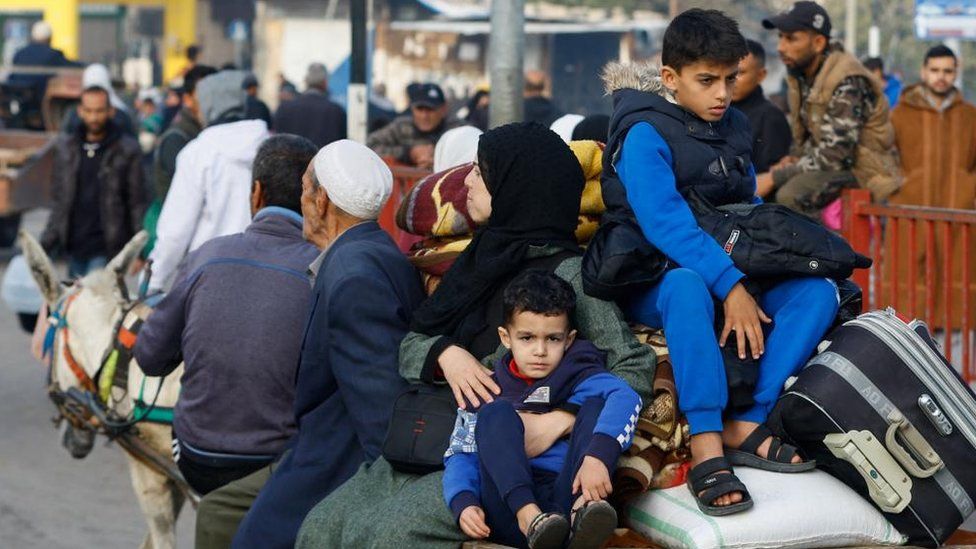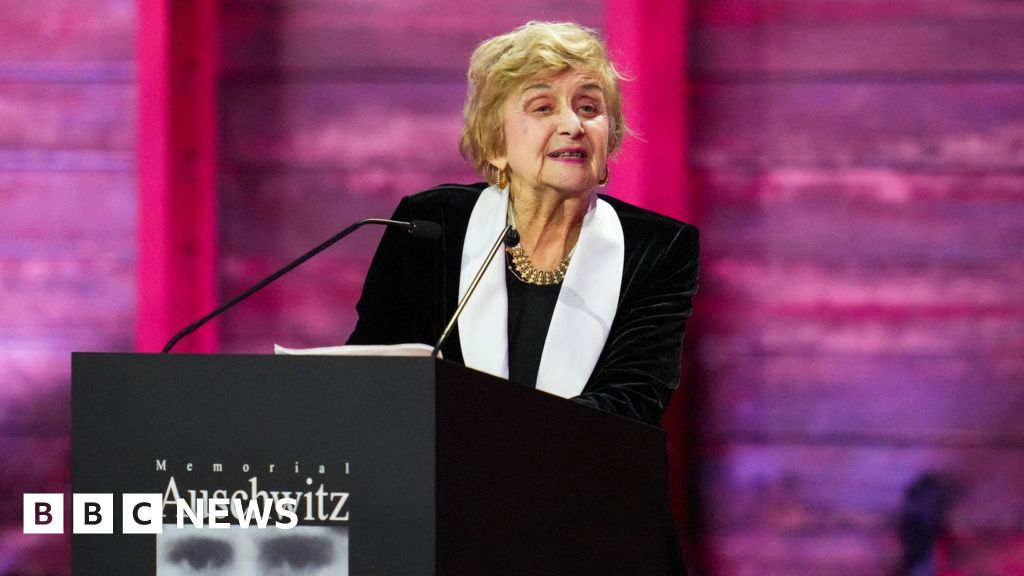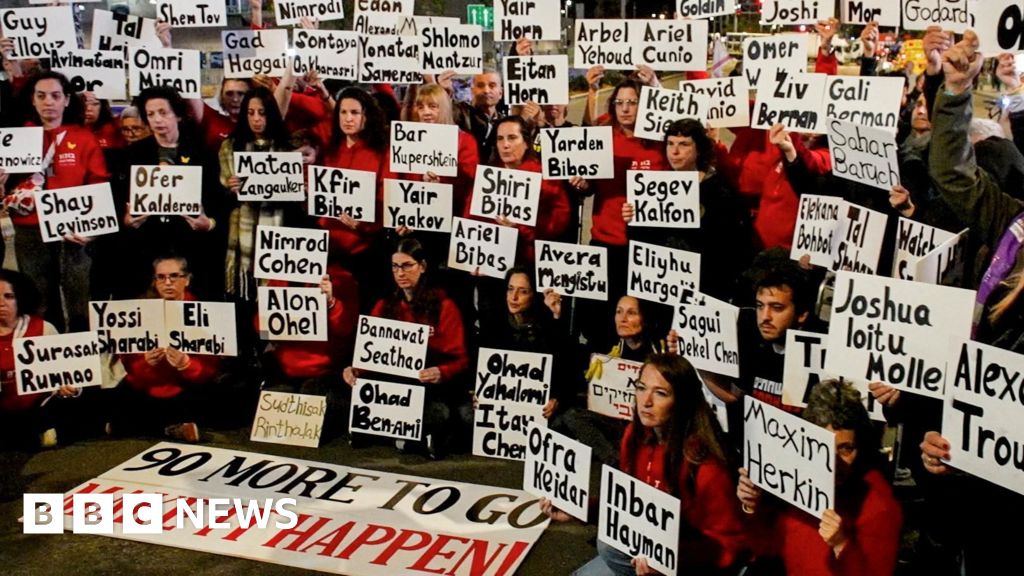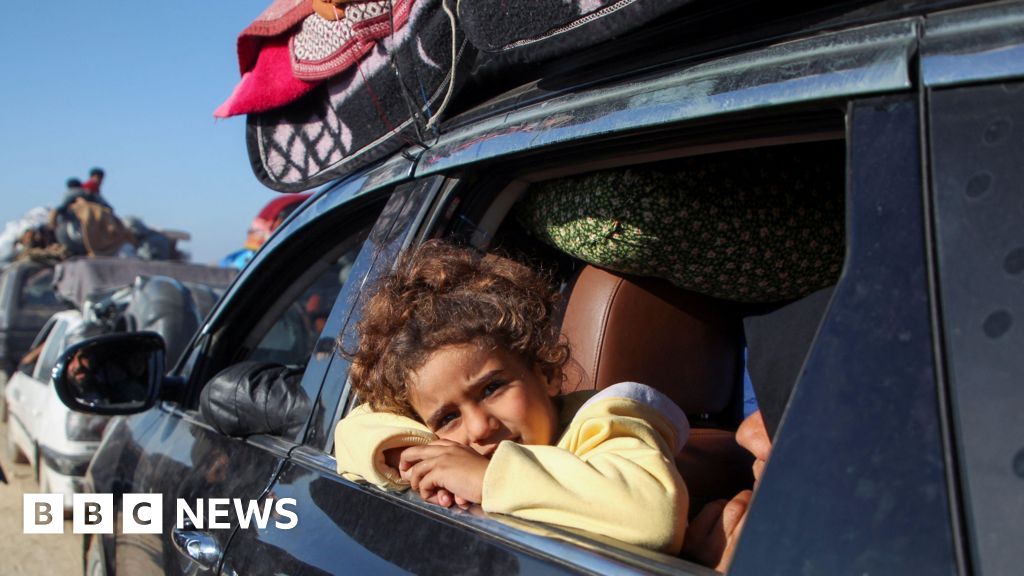ARTICLE AD BOX
 Image source, Reuters
Image source, Reuters
The resumption of fighting between Israel and Hamas is "the nightmare that everyone utterly feared," the UN says.
Early on Friday, a temporary ceasefire between the two warring sides expired - with both blaming each other for the resumption of hostilities.
Since then, the Hamas-run health ministry in Gaza says more than 100 people have been killed.
The renewed clashes are "catastrophic for the people of Gaza," James Elder, a spokesman for Unicef told the BBC.
"There was a strike 50m to 100m from here. There are ambulances there, I see the plumes of smoke," he told the BBC's Newsday programme from a hospital in Khan Younis in southern Gaza.
Mr Elder said Nasser hospital - which he described as the biggest functioning one in Gaza - was "wildly overflowing with children and people with wounds of war recovering from the last attack".
He described how many families had been sleeping on mattresses at the hospital for weeks.
"This hospital cannot possibly cope with a surge in wounds from the battlefield with more children with burns, with those horrendous shrapnel injuries".
Other UN aid agencies have described similar conditions at other hospitals in Gaza.
On Friday morning the Israel Defense Forces (IDF) said Hamas had opened fire at Israel, violating the terms of the temporary ceasefire agreement and leading to the resumption of hostilities.
A spokesperson for the IDF told the BBC that Hamas also broke the agreement on hostages by not releasing all the women and children it held.
However, Hamas blamed Israel for the resumption in fighting, saying it refused "to accept all offers to release other hostages".
Israel conducted air strikes on southern Gaza on Friday morning, where hundreds of thousands of people fled earlier in the war to escape fighting in the north.
Leaflets dropped by the IDF warned that Khan Younis is a "dangerous combat zone" and urged people in some parts to head to shelters further south.
Meanwhile, rockets fired from the Gaza Strip towards southern Israel have been intercepted by Israel's Iron Dome defence system.
More on Israel-Gaza war
People in Gaza who are sleeping in tents have told the BBC that they are struggling to cope with the cold weather. They also said there is very little water, food and medicine reaching hospitals.
Speaking to AFP news agency in Nasser hospital, Marwa Saleh said she fled from Gaza City at the beginning of the war to seek refuge in Khan Younis.
"My family and me are civilians, we have nothing to do with this war," she said. "I don't want to die and I don't want to lose anyone."
The Hamas-run health ministry in Gaza says more than 14,800 people have been killed since Israel began its campaign against Hamas in Gaza, including about 6,000 children.
It began bombing the territory after Hamas attacked Israel on 7 October, killing 1,200 people and kidnapping about 240 others. Over the last week, more than 100 of those hostages were released in exchange for the freeing of 240 Palestinian prisoners from Israeli jails.

 1 year ago
45
1 year ago
45








 English (US) ·
English (US) ·